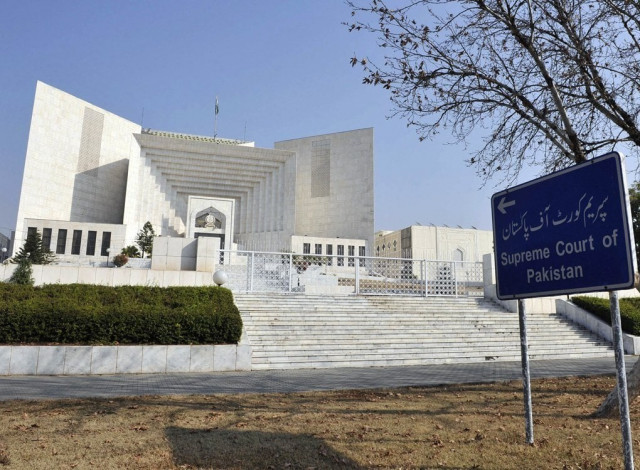SC urged to ‘read down’ sacked employees act
AGP says applicability should be restricted to employees appointed during 1993-96 but terminated during 1996-99

The Supreme Court has been asked by Attorney General for Pakistan (AGP) Khalid Jawed Khan to “read down” the provisions of Sacked Employees (Re-instatement) Act, 2010 to restrict its validity and applicability only to the extent of simple appointment/re-appointment of employees who were appointed during 1993 to 1996 but terminated during 1996 to 1999.
“This narrowed relief should be without the benefit of any payment without work or any payment/compensation for past, no one scale higher or position to the last post/grade/cadre etc held for re-appointed employees, no relief for the employees dismissed for misconduct/unfitness, no benefit of seniority for past service or period not actually served, all re-appointed employees/review petitioners must be treated to be at the bottom of the respective seniority lists on the date they were re-appointed in 2009 or 2010,” a written synapsis submitted by the AGP said.
“Thus, seniority of no employee already in service in 2009/2010 would be adversely affected. This would knock out any possibility of pervasive discrimination of rights of any existing employee which was the main ground that triggered litigation in high courts and the judgment under review,” the AGP said while arguing on behalf of the federal government’s review petition against SC’s judgment which sacked thousands of government employees.
A five-judge larger bench, headed by Justice Umar Ata Bandial, heard the review petitions filed by the government and sacked workers against the judgment, which struck down the Sacked Employees (Reinstatement) Ordinance Act, 2010.
READ PM Imran launches health insurance scheme for whole of Punjab
The AGP said that if the ambit, scope and applicability of the act is restricted to the extent submitted here, it would address the primary concerns of the employees/officers who joined service in routine and felt victimised and, therefore, approached courts assailing the benefits conferred under the act to their detriment. “Discrimination requires at least two people ie a victim and beneficiary of discrimination. The read down version of the Act, 2010, leaves no identified class of victims of discrimination under the Act, 2010.”
The AGP submitted that no compliance of the mandatory requirement of a proper notice to the attorney general under Order 27A, CPC, 1908, was raised as a ground for review.
“In the event that this mandatory requirement has not been fulfilled, could such fatal defect be cured by hearing the attorney general during review proceedings particularly when the scope of proceedings in review jurisdiction is inherently limited?”
In many cases these terminations were challenged in high courts where in some cases relief was given while denied in some but most of the cases were pending in high courts till October, 6, 1997.
During the hearing, Justice Syed Mansoor Ali Shah asked the government to give proposals for giving financial relief to those employees, who were removed after more than 10 years of service in consequence of the apex court judgment. Justice Shah asked the AGP to explain the federal government's view about giving financial relief to the sacked employees, adding that what is the government proposal as there is a human element.
The SC judge, however, noted that young people were deprived of jobs by allowing a particular class of people through the act of parliament. Justice Sajjad Ali Shah wondered how employees could have restored those who were removed from service on account of absence of duty as well as corruption.
You cannot make fresh appointments without criteria. There is sympathy but we can go by law, says Justice Bandial.



















COMMENTS
Comments are moderated and generally will be posted if they are on-topic and not abusive.
For more information, please see our Comments FAQ